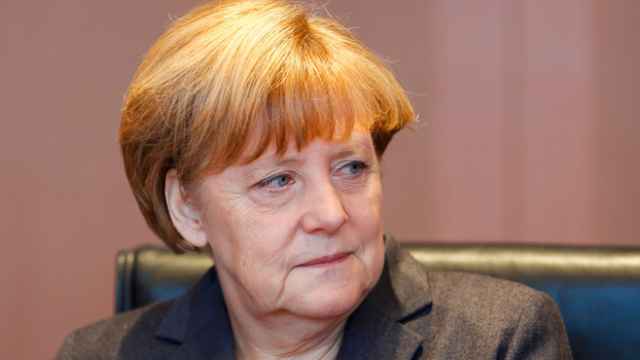A German court has ordered an autopsy on a conservative member of parliament who was a prominent critic of Russia's Vladimir Putin in order to rule out any link between his death and his hard-line stance towards the Kremlin, state prosecutors said.
Andreas Schockenhoff, a deputy parliamentary floor leader for Chancellor Angela Merkel's conservative party, died unexpectedly on Saturday at the age of 57.
A former point-man for the German government on relations with Russia, Schockenhoff was an outspoken proponent of tough sanctions against Russia after its annexation of Crimea.
"We don't know the cause of his death," Karl-Josef Diehl from the state prosecutor's office in Ravensburg told Reuters.
"In order to determine the exact cause of death and to counter all doubts and speculation, including any related to his previous work, like his role as the government's coordinator for Russia, an autopsy was requested and approved by the court."
Diehl said the coroner would perform the autopsy on Tuesday and results would be announced on Wednesday. The cause of death was unknown, he said. German media reported that he had died of natural causes.
Schockenhoff became a national figure in 2011 when he publicly acknowledged that he had an alcohol problem after crashing his car while driving under the influence. He left politics for a month for treatment.
Schockenhoff was the German government's coordinator for Russia from 2006 until early 2014. Two years ago, after he authored a parliamentary report that criticized president Putin, the Russian Foreign Ministry refused to recognize him as a representative of the German government.
In an interview with Deutschlandfunk radio last month, Schockenhoff said Putin was waging "hybrid warfare" against Ukraine and the West. "Russia will only respond when pressure is applied," he said. "And Putin will only do what he's forced to do."
A Message from The Moscow Times:
Dear readers,
We are facing unprecedented challenges. Russia's Prosecutor General's Office has designated The Moscow Times as an "undesirable" organization, criminalizing our work and putting our staff at risk of prosecution. This follows our earlier unjust labeling as a "foreign agent."
These actions are direct attempts to silence independent journalism in Russia. The authorities claim our work "discredits the decisions of the Russian leadership." We see things differently: we strive to provide accurate, unbiased reporting on Russia.
We, the journalists of The Moscow Times, refuse to be silenced. But to continue our work, we need your help.
Your support, no matter how small, makes a world of difference. If you can, please support us monthly starting from just $2. It's quick to set up, and every contribution makes a significant impact.
By supporting The Moscow Times, you're defending open, independent journalism in the face of repression. Thank you for standing with us.
Remind me later.





